As I sat across from my friend, John, sipping my cappuccino in our favorite corner café, I couldn’t help but notice the furrowed lines etched on his forehead. The typically upbeat and carefree John seemed burdened, his eyes clouded with unease. After much prodding about his mind, he finally opened up, “Things haven’t been great between me and my wife lately. Anything and everything I do drives her up the wall. Every conversation turns into a screaming match. Why does my wife yell at me all the time?”
“I don’t know what’s happening,” he went on. “I love her, you know I do, but the situation is spiraling out of control. My wife yells at me in public as well, not just in our private space. It’s embarrassing, humiliating, and infuriating. I just want us to go back to the way we used to be.” It was as if the weight of his confusion was pouring out with every word, and I could sense the vulnerability in his voice.
I also know for a fact that John is not the only one who is dealing with this. Marriages often go through rough patches, and when not handled correctly, these rough patches can lead to a breakdown of communication and result in unhealthy behaviors like yelling and screaming. By examining the reasons behind this tendency, you might discover opportunities for healing, connection, and renewal. Nandita Rambhia (M.Sc Psychology), who specializes in CBT, REBT, and couple’s counseling, offers some valuable insights into why a woman may resort to yelling at her partner and what can be done to remedy the situation.
Psychological Effects Of Being Yelled At In A Relationship
Table of Contents
The emotional impact of being subjected to yelling and verbal outbursts can be profound and can leave lasting scars on the psyche of both partners. In this section, we’ll delve into the psychological effects of being yelled at in a relationship, shedding light on the turmoil it can bring:
- Emotional trauma: Being subjected to repeated yelling can cause emotional trauma that can manifest as feelings of fear, anxiety, and distress. The person being yelled at may experience a heightened fight-or-flight response and emotional turmoil that can persist long after the argument ends
- Low self-esteem and self-worth: Constant criticism and harsh words can lead to a persistent sense of inadequacy, making it challenging for the person to feel valued and confident in the relationship
- Fear of communication: Yelling can instill a fear of communication, making it difficult for you to express your thoughts and emotions openly and leaving you hesitant to voice your concerns or needs. This, in turn, adversely impacts open and honest communication between partners
- Depression and anxiety: The emotional trauma from being yelled at can lead to mental health issues such as depression and anxiety
- Trust issues: Yelling can erode trust in the relationship. The person being yelled at may find it difficult to trust their partner, fearing that arguments will escalate into shouting matches, causing them to withdraw emotionally and, in some cases, question the longevity of the relationship
Unhinged yelling is a sign of a verbally abusive partner. Elaborating on how this impacts the person at the receiving end, Nandita says, “Dealing with a wife who resorts to yelling can be a pretty traumatic experience for a man. He would instinctively want to do anything to avoid such outbursts and may resort to avoiding conversations that may lead to an argument or shut down emotionally. In addition to this, there can be many psychological effects of being yelled at in a relationship such as depression, anxiety, and self-esteem issues.”
Related Reading: 7 Signs You Have A Verbally Abusive Wife And 6 Things You Can Do About It
A Reddit user says, “My wife shouts at me a lot when she is stressed and when normal family problems (small or big) come up. She’d explode and almost bully me with no hesitation in front of our 2 kids (1- and 3-year-old boys). I’ve been trying to solve the root cause of this behavior for the last 10 years but I think it’s unsolvable. She was brought up in a dysfunctional family where there was a lot of shouting from everyone and one was constantly humiliating the other.
“Her family is very bonded and they love each other very much, but they don’t seem to excel in critical thinking and problem solving via civilized discussion even for the simplest of matters. To be heard, they resort to raising their voice, barking, swearing, and name-calling. As a result, my wife shouts frequently. What’s worse is my wife yells at me in public sometimes.
“So, my current problem is that my wife yells at me over little things in front of our 2 kids. Sometimes the older one may start crying. Other times he may come asking, “Why is mommy shouting, or what is she saying?” When he was younger and couldn’t understand much, he would laugh and sometimes try to copy this behavior.”
Chronic yelling can be considered psychological abuse if the person yelling shows no desire or capacity to change and it could very easily escalate into physical abuse. Although domestic violence against heterosexual males has not been studied much, there is research that has found, “The reported consequences of violence include mostly minor physical injuries, impaired physical health, mental health problems such as anxiety or a disruptive disorder, and increased consumption of alcohol and/or illegal drugs.”
Related Reading: How To React When Your Spouse Says Hurtful Things?
Why Does My Wife Yell At Me? 10 Possible Reasons

In an intimate relationship, the crescendo of a shouting match can often be more bewildering than the argument itself. The triggers behind these vocal outbursts are as diverse as the partnerships themselves. If you often find yourself wondering, “Why is my wife yelling at me now?”, you need to delve deeper into the maze of emotions, dynamics, and insecurities in the relationship to identify the underlying trigger.
Yelling and screaming are often manifestations of deeper issues, an emotional eruption that often masks unspoken needs and frustrations. Nandita says, “At the core of the tendency to yell lies the plain and simple yearning to gain attention. So, the question you must be asking is why is she resorting to such deafening measures to grab your attention.” By understanding these underlying motives, you can hope to answer the question, “Why does my wife yell at me?” So, let’s explore ten potential explanations for why your yells at you:
Related Reading: 10 Ways Saying Hurtful Things In A Relationship Affects It
1. There has been a communication breakdown
If you find yourself in a toxic relationship marred by raised voices, verbal abuse, or name-calling, you might be experiencing a breakdown in communication. Lack of communication in a marriage is a breeding ground for heightened emotions and frustrations. When communication is ineffective, your wife may struggle to convey her thoughts and emotions clearly.
This can result in more misunderstandings and misinterpretations, adding to her existing frustration. As these misunderstandings pile up, she may become increasingly exasperated, which can eventually boil over into yelling. Here’s why communication breakdown can escalate into shouting matches:
- Frustration due to misunderstanding: As misunderstandings pile up, your wife may become increasingly exasperated, which can eventually boil over into yelling
- Feeling unheard and dismissed: This can be deeply frustrating and hurtful, leading to a sense of being unheard. Yelling may be seen as the only way to ensure that her voice is not ignored
- Emotional escalation: Negative emotions such as anger, hurt, and resentment may intensify, leading to yelling as a way to release this emotional pressure even over minor issues
- Desire to feel heard: In moments of frustration, your wife may resort to yelling in a bid to get her message across when she feels that other, less confrontational forms of communication have failed
- Breakdown of patience: When she perceives that she’s reached her limit in trying to communicate calmly, she may resort to yelling as a way to express her frustration and impatience
Related Reading: Communication Problems In Relationships – 11 Ways To Overcome
2. There is unresolved conflict
Unresolved conflicts lack closure. The absence of a resolution can keep the issue alive, causing it to resurface in future arguments. Your wife may become increasingly frustrated by the cyclical nature of the conflict, which can contribute to an emotional outburst, leading to a vicious cycle of anger and yelling.
3. She is stressed out by something else
If your wife is under significant stress, she may experience emotional overload and this could be the reason your wife screams and yells. Chronic stress can amplify emotional responses and lead to the depletion of healthier coping strategies, making her more prone to yelling as a way to release pent-up emotions.

4. She may be suppressing her emotions
“Why does my wife yell at me?” Suppressed emotions could be the reason. When emotions are consistently suppressed, they don’t simply disappear; they accumulate over time as pent-up anger. This emotional overload can make it difficult for your wife to manage her feelings, resulting in explosive outbursts of yelling when her emotional threshold is exceeded. Here’s how the suppression of emotions can lead to chronic yelling by an angry wife in a relationship:
- Emotional overload: Pent-up emotions can result in explosive outbursts of yelling when her threshold is exceeded
- Lack of healthy expression: When someone suppresses their emotions, they often lack healthy outlets for expressing their feelings. Yelling may become the default way to release emotional pressure, as it can provide temporary relief
- Escalating frustration: Chronic suppression of emotions can lead to a short temper, making it more likely for your wife to resort to yelling when she is feeling overwhelmed
- Communication breakdown: When your wife finds herself unable to express her emotions openly, she may resort to yelling as a way to convey her frustration or make her feelings known
- Loss of emotional resilience: Your wife may find it increasingly challenging to manage her emotions and maintain composure, resulting in more frequent and intense yelling episodes
Suppressing emotions is also a common response to past trauma, especially when experienced in childhood. Your wife may have been emotionally, physically, or sexually abused, which would have compelled her to suppress her emotions as a child. A study states, “Interpersonal rejection sensitivity mediates the relationship between CSA and later depressive symptoms. Interpersonal rejection sensitivity partially mediated the relationship between CSA and anger suppression.” If she does have a mental disorder due to past trauma, she needs professional help as soon as possible.
Related Reading: 9 Expert Tips On How To Control Your Emotions In A Relationship
5. You may not be respecting her boundaries
It’s possible that your wife’s yelling is a result of you unknowingly crossing/disrespecting her boundaries. Boundary violations can be a source of frustration and conflict in relationships, which may lead to emotional outbursts such as yelling. If yours is not a toxic relationship and your wife yells or shouts as a reaction to specific actions, it could well be because she feels her boundaries are not being respected.
For instance, if she startles easily and you sneak up on her to surprise her, she may respond by yelling at you and storming out. Now, you may view this as an overreaction, but for someone who scares and startles easily, it’s not an overreaction at all. In fact, she may feel frustrated that you cannot “understand such a simple thing”. Every time this behavior is repeated, her reaction may become stronger.

6. She could be dealing with unmet expectations
Unmet expectations can lead to frustration, disappointment, and heightened emotions, which can result in emotional outbursts or emotional flooding including yelling. Here’s how unmet expectations can contribute to chronic yelling:
- Frustration: When expectations are not met, individuals may become frustrated or resentful over time, which can lead to chronic yelling as a way to express this growing discontent
- Disappointment: Your wife may feel let down or hurt when her expectations are not fulfilled, and this disappointment can manifest as yelling, especially if she perceives her needs or desires as repeatedly ignored or dismissed
- Desire for resolution: Yelling may be her way of demanding a resolution to the issues arising from unmet expectations in the hope that by raising her voice, she can compel attention to these unfulfilled desires and provoke discussion or action
7. She may be feeling neglected
Consider the possibility that she feels neglected. Maybe she doesn’t feel heard or seen by you. A common example of this is many husbands take it for granted that their wives will do all the household chores. Feeling neglected in a relationship can lead to frustration, resentment, and heightened emotions, which may manifest as yelling. Neglect can also result in a lack of emotional connection in the relationship. When your wife feels emotionally disconnected from you, she may resort to yelling as a way to gain your attention or just to feel respected.
Related Reading: Emotional Validation In Relationships – Meaning, Importance, And Signs
8. There may be a power imbalance in your marriage
When one partner feels disempowered, marginalized, or that their needs and concerns are not being taken seriously due to a perceived power imbalance or power struggle, it can lead to frustration, anger, and shouting. Here’s how a power imbalance can contribute to chronic yelling:
- Loss of autonomy: A power imbalance may result in one partner feeling like they have lost their autonomy or the ability to make decisions, resulting in feelings of helplessness and frustration, which may be expressed through yelling as a way to regain some sense of control
- Asserting influence: Yelling may serve as an attempt to assert influence and restore balance within the relationship — a way for the disempowered partner to reclaim some authority or bring attention to the power dynamics they perceive
- Escalation of conflict: Power imbalances can create a breeding ground for escalated conflicts. Chronic shouting may be an attempt to address these imbalances and confront the partner who holds more power
Related Reading: 7 Expert Backed Ways To Help A Depressed Wife
9. Your wife may be dealing with unresolved insecurity or jealousy
Insecure individuals often fear losing their partner or the relationship itself. This fear can be exacerbated by jealousy, leading to heightened emotional responses. Your wife’s toxic behavior in a relationship, characterized by yelling and screaming, could just be a manifestation of her insecurities. All she may need is a little reassurance in the relationship from time to time to know that she is loved, wanted, and valued.
10. She may lack the necessary coping skills for a healthy marriage
When individuals lack healthy ways to manage stress, emotions, and conflict, they may resort to maladaptive coping mechanisms or emotional abuse, including yelling. Inadequate coping skills can make it challenging to handle stress and could escalate to domestic violence. Chronic stress can lead to heightened emotional reactivity, making individuals more prone to shouting as a way to release tension.

What Do I Do If My Wife Yells At Me? 7 Tips To Break The Pattern
Nandita says, “There are usually four kinds of response that husbands choose in the event of being yelled at. First is to yell back, the second is to unattentively listen to let the thunderstorm pass, the third is to walk away and hide, and the fourth is to stay calm and actively listen to understand. The most effective in the long run is the fourth.”
Addressing your wife’s anger can be a difficult and emotionally taxing situation. In this section, we cover seven expert-backed tips on dealing with a yelling wife. It’s essential to approach such challenges with patience, understanding, and a willingness to find constructive solutions. To make that happen, there are several key steps to consider when figuring out how to deal with your wife yelling at you:
Related Reading: 12 Smart And Easy Ways To Deal With A Nagging Wife
1. Empathize with your wife and listen to her perspective
Expressing empathy is a vital aspect of dealing with a partner who yells. It is also essential for a healthy relationship. When your spouse is upset and raises their voice, they may feel unheard or unacknowledged. Instead of dismissing your wife’s outburst with “here she goes again”, approach it with a sense of curiosity. Ask yourself, “Why is my wife yelling at me?” Or better still, when she’s had the chance to calm down, ask her what brought on her outburst. When she opens up, be a good listener and demonstrate empathy to de-escalate the situation and foster a more constructive conversation.
2. Foster open and respectful communication
The cycles of yelling and shouting can make your relationship toxic. The only way to break free from this pattern is to work on fostering effective communication; it is the cornerstone of any successful marriage. You can achieve this by:
- Encouraging open and honest discussions where both of you can express yourselves without fear of judgment or criticism
- Establishing ground rules for respectful communication, such as avoiding personal attacks or interrupting each other
- Using “I” statements to express your feelings and concerns and encouraging your wife to do the same
“When you feel suffocated or overwhelmed, convey how you feel when she screams at you. Learn to be vulnerable. It is only when both of you can understand each other’s emotions in a safe and honest space that you can restore the harmony of your relationship together,” says Nandita. Learning communication skills together can be a lifesaver for your relationship.
Related Reading: 9 Expert Tips On How To Control Your Emotions In A Relationship
3. Identify triggers and address underlying issues
“Generally, constant yelling becomes a pattern and you need to identify the triggers to this pattern. Triggers could be many, but the pattern usually remains the same,” says Nandita. Take the time to identify the underlying causes that lead to your wife’s yelling instead of simply labeling her as verbally abusive and pinning the entire blame for your relationship troubles on her.
This is not to say that your wife is not accountable for her actions or that she isn’t displaying toxic behavior in the relationship. But assigning blame won’t help remedy the situation. The only way out of this toxic cycle is to identify the underlying causes so that you can proactively work on addressing them.

4. Practice emotional regulation techniques
Emotional regulation is a skill that can be cultivated with practice. Encourage your wife to explore anger management techniques such as deep breathing exercises, meditation, or journaling to manage her emotions in healthier ways. Offer to participate in these practices together, as it can promote a sense of shared responsibility and emotional well-being.
5. Set boundaries and establish a safe space
Boundaries in a relationship are essential for maintaining a healthy marriage. Together with your wife, establish clear boundaries around different points like communication and acceptable behavior. Respect each other’s personal space and ensure that you both feel safe and secure within the relationship.
Related Reading: Does Marriage Counseling Work In Solving Relationship Issues?
6. Seek professional help if needed
If your efforts to address persistent yelling in your relationship have been unsuccessful, seeking the guidance of a professional couples therapist can provide valuable support. Nandita says, “It is important to be open to the possibility of her yelling being a result of some sort of trauma. It could be from the past or it could be from something currently happening to her. So be aware of that and seek help from a professional instead of just blaming her and labeling her the crazy wife.”
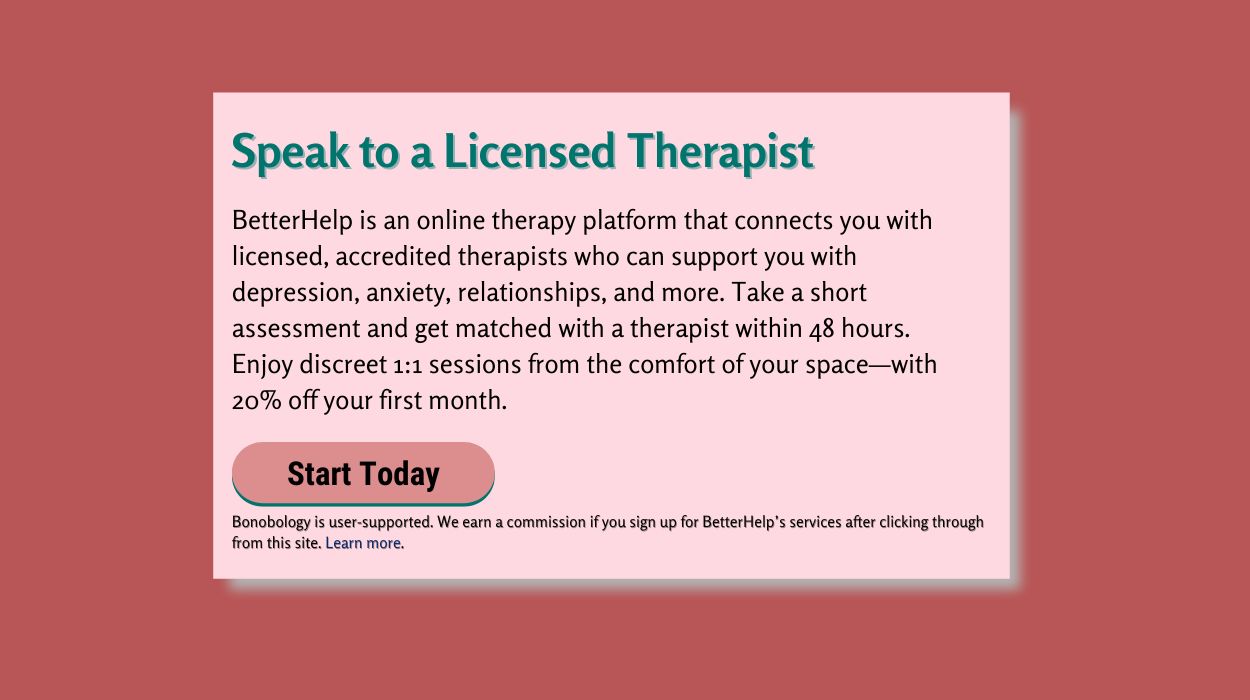
7. Lead by example and practice self-care
Remember that change starts with you. Model the behavior you want to see in your wife by remaining calm, composed, and respectful, even in the face of conflict. Show her that it’s possible to address disagreements and express emotions without resorting to yelling. Lead by example by practicing self-care and managing your stress levels.
Key Pointers
- At the core of the yelling phenomenon lies the desire to be heard and valued
- This tendency can be attributed to various reasons like stress overload, communication breakdown, personal dissatisfaction, and lack of emotional regulation
- It is important to recognize the reasons and then try out measures like open communication, identifying triggers, practicing emotional regulation techniques, and seeking professional help
- By promoting understanding and improving communication, you can replace yelling with compassion in your relationship
Final Thoughts
In conclusion, breaking the pattern of yelling in relationships is a challenging but essential journey toward healthier and more constructive communication. Remember that it’s a shared effort, and with dedication and mutual commitment, you can transform your relationship into one that is marked by understanding, empathy, and healthier ways of resolving conflicts.
Your contribution does not constitute a charitable donation. It will allow Bonobology to continue bringing you new and up-to-date information in our pursuit of helping anyone in the world to learn how to do anything.









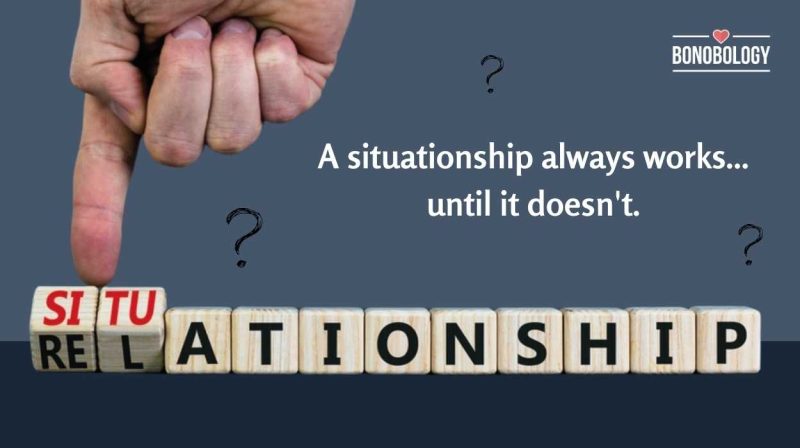



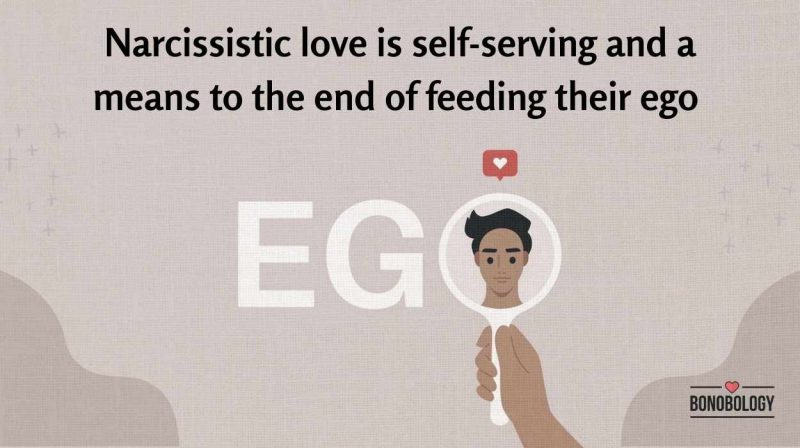


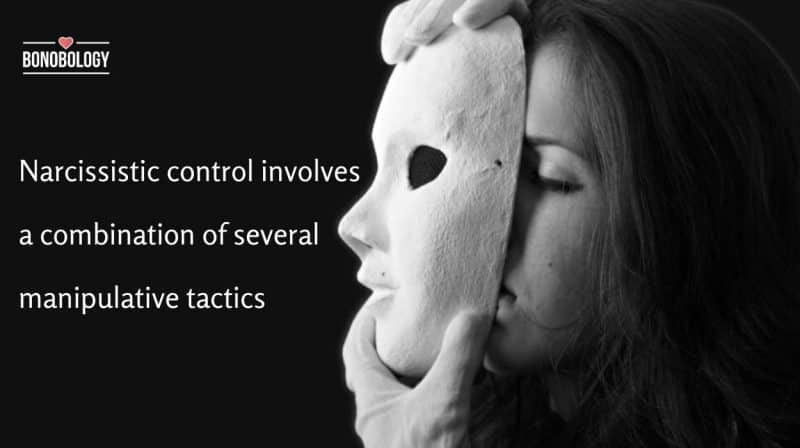



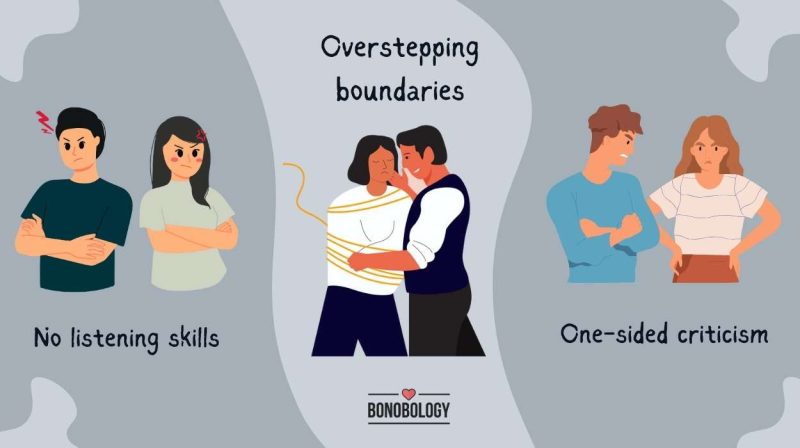
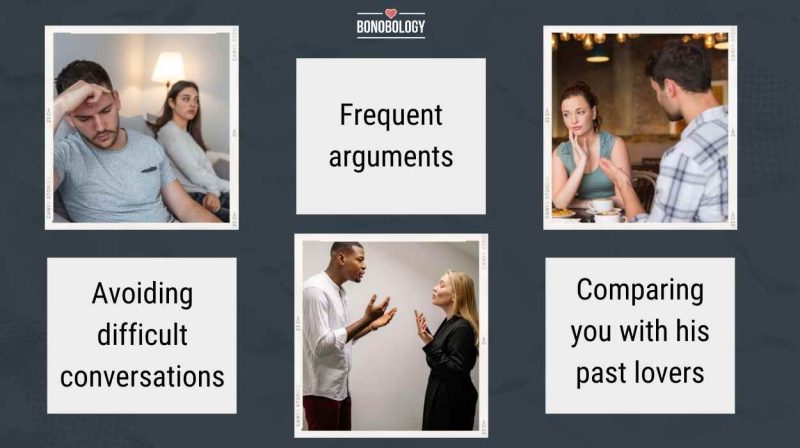

Featured
13 Signs Of A Hot And Cold Relationship & How To Break The Pattern
21 Subtle Signs You’re Not Really In Love With Your Partner
I Hate My Girlfriend: Why You Feel This Way And What To Do
When Health Challenges Affect Your Relationship Dynamics
5 Harsh But True Signs He’ll Never Marry You
21 Signs That You Are Alone In A Relationship
11 Situationship Red Flags You Should Know About
Why Do I Get Attached So Easily? 9 Possible Reasons and Ways to Stop
How To Respond To DARVO: Expert Lists 7 Strategies
What Is Fexting, And Why Is It Bad For Your Relationship?
Are Narcissists Capable Of Love?
11 Prominent Male Narcissist Traits to Watch For
Why Does My Girlfriend Hit Me? Expert Shares 11 Possible Reasons And Ways To Cope
How Does A Narcissist React When They Can’t Control You?
“My Anxiety Is Ruining My Relationship”: 6 Ways It Does And 5 Ways To Manage It
13 Distinctive Traits Of Female Narcissists Revealed
Recognizing The 13 Red Flags Of A Controlling Relationship
What Are The Examples Of Narcissistic Behavior In A Relationship?
11 Signs He Is Forcing Himself To Love You
21 Signs The Relationship Is Over For Him and How To Deal With It